The five things in bedrooms that are ruining sleep – how to avoid them
Take note of the unsuspecting culprits that could be causing sleepless nights
Getting a good night's sleep is imperative to good health and wellbeing. Yet so often many of us complain of not getting enough quality shuteye. And could that reason be something simple that you're unaware of, such as bright lights or bad bedtime routines?
Talking of sleep: How to sleep well with… Adam Black of Button & Sprung
We speak to Natalie Armstrong, sleep expert at Sealy UK, to reveal the culprits that could be sabotaging our sleep, and how to tackle them.
No longer feel left in the dark on what's likely affecting your sleep...
Top 5 things in bedroom disturbing sleep
1. Lights
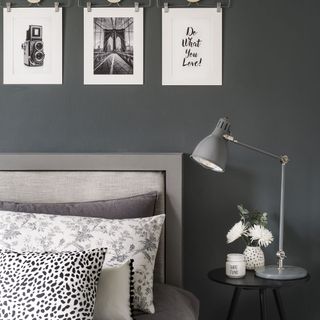
Blue light from devices gets a bad rap, but it’s not the only way that light in your bedroom that could be ruining your sleep. We all have an internal clock that mirrors nature’s cycles of day and night, meaning any light – including bright overhead lights in your bedroom – can incorrectly trigger this cycle and keep you awake.
Bright light in your bedroom before going to sleep could keep you awake even once the light is off, experts recommend we dim the lights before bedtime, and avoid turning them on all together for nighttime loo trips. If it’s outside light that’s the problem – whether streetlights or natural light – blackout blinds could be the answer.
2. Tech

'We all know that phones aren’t good for sleep, but have you considered the other technology you may have in your bedroom? Watching a TV show or reading on an e-reader or tablet might seem like a good way to unwind before bed, but these devices emit the same blue light as phones, which has been shown to suppress melatonin, the sleep hormone, and disturb the body’s natural circadian rhythms, which regulates our sleep-wake cycle.'
Get the Ideal Home Newsletter
Sign up to our newsletter for style and decor inspiration, house makeovers, project advice and more.
Do you have a TV in your bedroom? Now might be the time to reconsider – not only is it more likely to keep you up later at night watching for the sake of watching, studies have shown a link between binge-watching TV and poor sleep quality.
3. Clutter
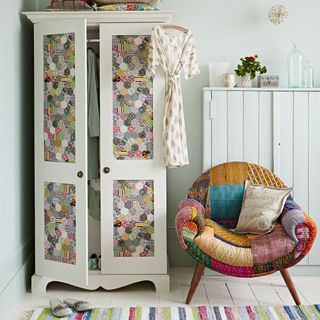
Bedrooms aren't just a place to sleep, they are the place we get dressed, do work and have leisure time, and therefore at risk of becoming one of the messiest rooms in the house. What clutter could be a factor in disturbing a sound night's sleep.
'Bedrooms often attract clutter and you might think it’s harmless, but it could be having a detrimental effect on your sleep. This is because the clutter will naturally weigh on your mind, whether you’re conscious of it or not, and your brain will interpret the clutter as a task that needs to be completed. This anxiety naturally makes it harder to drop off and can make it harder for you to get up in the morning.'
To sleep more soundly, embrace your inner Marie Kondo and clear away the clutter – out of sight out of mind.
4. Wall colour
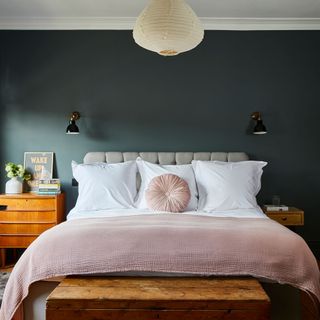
Could the colour of your walls be keeping you up at night? 'A study found that those with grey, brown, red or purple bedrooms regularly had less than 7 hours of sleep a night*, with colours that are too bright and bold thought to stimulate the brain, creating a state of alertness which makes it harder to sleep.'
Natalie advises, 'if you want a better night’s sleep, try painting your bedroom blue or green. Associated with the sky and nature, blue and green stimulate feelings of tranquility, prompting our body to relax and helping us to fall asleep more quickly.'
Ideas: Green bedroom decorating ideas – explore the shades that can create a luxe retreat
5. The mattress
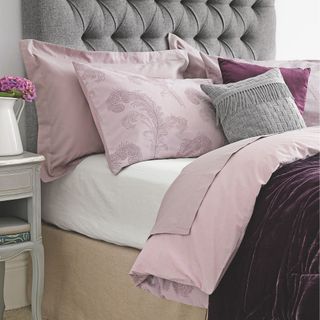
'The quality of your mattress is one of the biggest factors that could be stopping you from getting a good night’s sleep. Whether it’s an old mattress that’s lost its shape, or one that's too firm or too soft for your comfort levels, a bad mattress can cost you dearly. If you’re tossing and turning night after night or waking up feeling unrested, consider how long you have had your mattress and if it’s the right one for you.'
Related: Best mattress – the top choices for a perfect night’s sleep, now updated for 2020
The experts say, 'It’s recommended that you change your mattress every seven years so if you’ve had yours longer it might be time to say goodbye. Look for a mattress that offers core support and is made with materials such as Purotex, which gets rid of dust mites, which can cause allergies that could be inadvertently keeping you up at night.'
Tamara was Ideal Home's Digital Editor before joining the Woman & Home team in 2022. She has spent the last 15 years working with the style teams at Country Homes & Interiors and Ideal Home, both now at Future PLC. It’s with these award wining interiors teams that she's honed her skills and passion for shopping, styling and writing. Tamara is always ahead of the curve when it comes to interiors trends – and is great at seeking out designer dupes on the high street.
-
 When to plant asparagus – experts reveal the perfect time to guarantee delicious asparagus spears this year
When to plant asparagus – experts reveal the perfect time to guarantee delicious asparagus spears this yearWhether you're working with asparagus crowns or seeds, here's when to plant yours for that 5-a-day magic...
By Kayleigh Dray
-
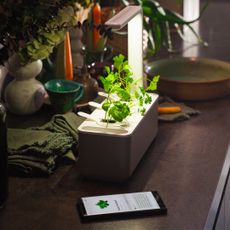 3 easy ways to use smart tech to keep your houseplants happy
3 easy ways to use smart tech to keep your houseplants happyBecome a proud plant parent with these tech tips
By Ideal Home
-
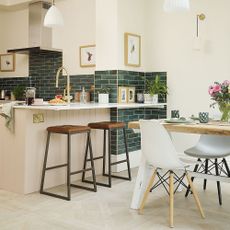 Should you choose a kitchen island or a breakfast bar? These are the key differences, plus which is best
Should you choose a kitchen island or a breakfast bar? These are the key differences, plus which is bestMake sure you choose the right one for your home
By Holly Cockburn